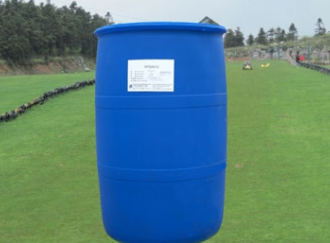Some achievements have been made in the research of plant-derived pesticides at home and abroad, but few dosage forms have been formed. The reason is that there are still many deficiencies in the research process of plant-derived pesticides, such as the complexity of active components and the instability of content. The stability of natural products and the active components extracted and separated from plants are no different from traditional chemical pesticides in structure, but the essence of it and traditional chemical synthetic pesticides lies in its poor stability. The complex composition of active components extracted and separated from plants exceeds people's expectations, which not only makes it difficult to extract and separate, but also makes it difficult to determine whether the relationship between components is synergy, synergy or antagonism, It is difficult to study the mechanism of insecticidal and disease resistance. It often appears that the insecticidal effect is good, but the root cause is unclear.

It can be decomposed by other organisms in nature. This aspect is its advantage, but it will face the problem of poor stability in application. The retention period of general liquid agents is difficult to exceed the year. Due to the particularity of preparation processing, due to the complexity and variety of plant extracted components, different methods or different dosage forms must be used in the preparation processing process, so that the application effect can be brought into full play.
The wide use of traditional chemical pesticides plays an important role in ensuring the high and stable yield of crops.
However, the long-term use of traditional chemical pesticides leads to the drug resistance of pests, forcing people to continuously increase the dosage of pesticides, resulting in more and more environmental pollution and endangering human health. The main cause of these problems is pesticide residues. The so-called residue refers to the general term of pesticide plasma, toxic metabolism, degradation products and impurities left in organisms, food (agricultural and sideline products) and the environment after pesticide use. Residual pesticides have certain toxicity and are a serious chemical hazard, which constitutes a direct or potential hazard to human health.
Botanical pesticides are active substances with insecticidal or bactericidal effects made from the direct use or extraction of plant roots, stems, leaves, flowers, fruits and seeds, or secondary metabolites. Plant derived pesticides are ideal pesticides for developing organic agriculture and promoting the sustainable development of agriculture. In the national "Tenth Five Year Plan" and "Eleventh Five Year Plan" major scientific and technological projects and scientific and technological achievements transformation fund projects, there are plant-derived pesticide projects. The in-depth development of plant-derived pesticides is the focus of current research.
Compared with traditional chemical pesticides, botanical pesticides have many advantages. First, their chemical structures are novel: in the long process of evolution, plants can produce a variety of insect toxic compounds in order to survive, among which some toxic compounds with complex and diverse structures cannot be produced by traditional methods; Second, environmental safety: the active components of plant-derived pesticides are naturally existing substances, and nature has its smooth degradation path, which will not pollute the environment; Third, high selectivity: insecticidal active substances from plants have high target species selectivity, or special selectivity established through coevolution, which is the result of long-term selection in nature, so they are safer to natural enemies. In this regard, any traditional insecticide is incomparable; Fourth, it is not easy to produce drug resistance: most botanical pesticides have complex components and can act on multiple organ systems of pests or multiple targets in a system, which is conducive to overcoming drug resistance of pests; Fifth, there are a wide range of raw materials: plant derived pesticides have a wide range of sources and rich resources. Moreover, the source plants we apply are all northern plants, which can be artificially cultivated. With sufficient raw materials and extensive resources, they have broad market potential, and can also drive the cultivation of medicinal plants and agricultural income in the north.